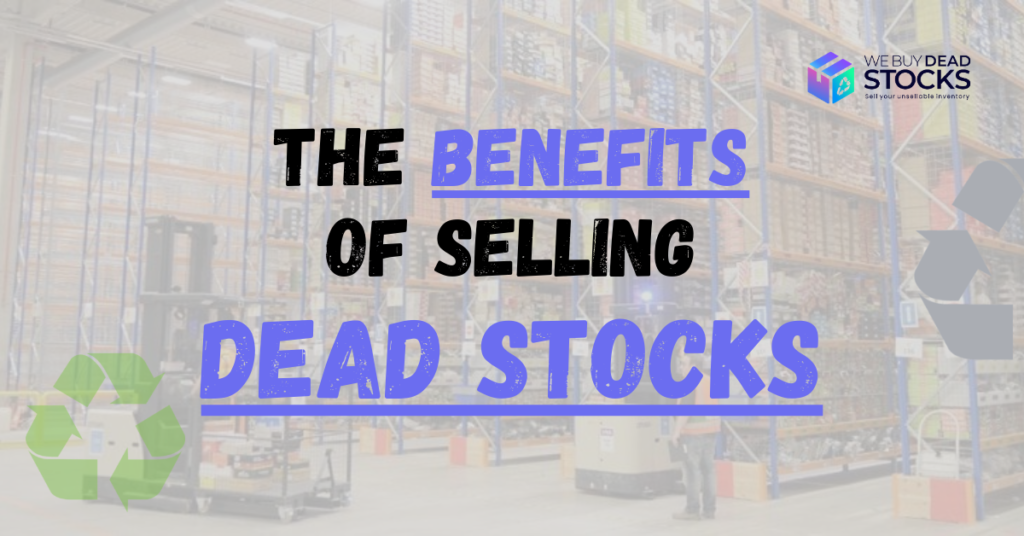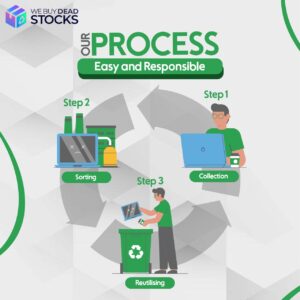Smart financial judgements sometimes depend on the capacity to adapt and make strategic decisions in the always changing world of investments. As used stock buyer, people are always looking for strategies to increase profits and cut down on losses. One area that often goes overlooked in this pursuit is the realm of “dead stocks.” These are the assets that might have grown stale over time, failed to produce returns, or just no longer support our investment objectives. It’s simple to ignore their potential, but there is a fantastic opportunity to transform these worthless stocks into valuable assets in the thriving financial market of the large scrap buyer in UAE.
Introduction: The Concept of Dead Stocks
What are dead stocks?
Dead stocks are those things that are abandoned and sit silently on store shelves or in warehouses, hardly ever being used. They are frequently disregarded and underestimated. Due to the fact that they were purchased but never used, these things drain a company’s cash flow. In plainer terms, these are the goods that fail to generate sales.
Causes of dead stocks accumulation
Dead stocks do not just magically arise. There are several causes for this accumulation:
- Overestimating Demand: On occasion, companies over purchase a product in the hopes that it would be a success. However, if consumers aren’t as enthusiastic about it as anticipated, it goes out of stock.
- Adapting Trends: Consumer preferences, technological advancements, and fashion trends can change quickly. A product may become dead stock if it is no longer in demand. That’s why there are many computer scrap buyer.
- Poor Inventory Management: Poor inventory management can cause things to expire or become obsolete because of insufficient inventory tracking or a failure to rotate stock.
The financial impact of dead stocks on businesses
Dead stocks can negatively impact a company’s financial line and are not merely a waste of space:
- Tied-Up Capital: Funds used to purchase defunct equities could have been invested in more lucrative projects. The financial flexibility of an organisation is hampered when cash is invested in products that aren’t selling.
- Storage fees: It costs money to warehouse and keep these extra objects. Businesses are responsible for covering the cost of the facility and any necessary upkeep.
- Reduced Profits: Dead stocks don’t bring in money, and they might even have to be cleared out by selling them at a loss.
The Role of a Leading Used Stock Buyer
When dead stocks begin to accumulate in the corporate world, it’s critical to understand that you’re not the only one dealing with this problem. There are large scrap buyer in the UAE who focus on handling dead stocks, and they might be crucial in assisting your company’s recovery.
A reputable used stock buyer is comparable to a superhero in the field of stock control. They intervene to save the day by providing fixes for those unsaleable goods. Here’s how they can change things:
- Clearing Dead Stocks: These professionals can locate new homes for your dead stocks through their networks and platforms. They could resell them or use them in another way to generate income from idle products.
- Recovering Capital: By purchasing your dead shares, they replenish your company’s financial resources. This excess money can expand your business in other areas or to invest in more lucrative businesses.
- Reduced Storage Costs: You won’t have to pay for the deceased stock’s storage once it has been taken off your hands. In the long term, this will save you money and free up valuable space.
- Increasing Profitability: Getting rid of dead stocks at a fair price can cut losses and possibly even make money from them.
But it’s critical to pick a dependable used stock buyer who treats your things properly and conducts business openly. By doing this, you can make sure you obtain the best value while also clearing out your inventory.
Benefits of Selling Dead Stocks
Dead stock lingering around is not only a pain, but it also represents a lost opportunity. Let’s explore the benefits of selling those unused items:
- Recover Cash Flow: Selling dead stocks helps your company regain much-needed cash flow. This excess money can be invested in new product lines, used to pay operating costs, or any number of other things.
- Frees Up Storage Space: Storage space is freed up because dead stocks are no longer an issue, giving you important room for other things. The additional space can optimise your workspace or store new products, which would enhance your business’s overall operations.
- Reduces Losses: Even if dead stocks may not be sold for their original value, getting any money for them is preferable to having them sit around collecting dust. This reduces losses and, in some circumstances, may even result in a potential profit.
- Focus on Profitable Items: By getting rid of your dead stock, you can concentrate your efforts and resources on items that are genuinely doing well. This emphasis on profitability may improve business performance as a whole.
- Enhances Financial Health: Decreasing dead stocks might help your financial ratios and balance sheet. It gives your company a healthy appearance to lenders and investors, possibly creating prospects for expansion or funding.
Conclusion: How to Maximise Returns on Dead Stock
Selling dead stock is one thing, but the real magic is in extracting the most value out of it. Here are some pointers to assist you get the most profit from those unused items:
Assessment and Classification: Sort your deceased stocks into categories first. While some might still be worth selling, others would be better for recycling or charity. Making educated selections requires first knowing what you have.
Price Competitively: Set a fair price for your deceased goods. Establish fair prices after doing market research on comparable products. Instead of holding out for an excessively high price, it is preferable to sell the shares promptly and for a modest discount.
Promotions and Discounts: Discounts, buy-one-get-one-free deals, and other promotional strategies to attract clients to buy your out-of-date inventory. Even dead stuff might seem enticing with the right marketing.
Liquidation Sales: Look for opportunities to take part in auctions or other types of liquidation sales. This may be a quick and efficient approach to get rid of a lot of dead stock.
Remember that the objective is to recover as much value as possible in addition to simply getting rid of dead stock. You can transform what first appeared to be a loss for your company into an opportunity by using these tactics.





